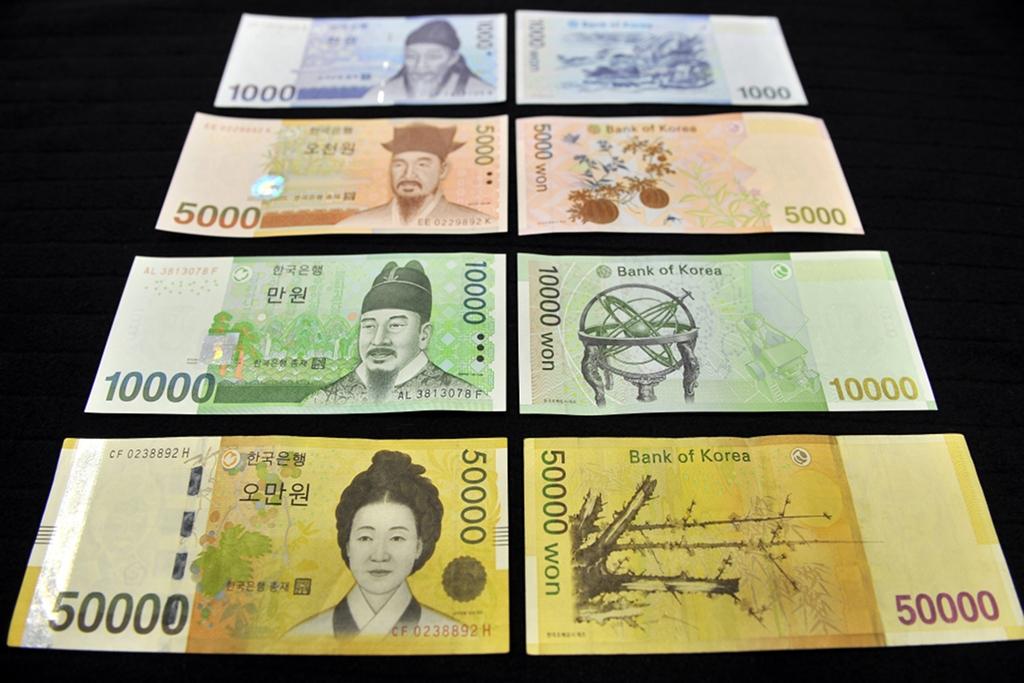Why Bank of Korea’s work is done for the year
The South Korean won.
South Korea’s central bank, which cut interest rates twice this year, may hold off on further easing for the rest of the year amid signs the economy is bottoming and as the nation prepares for presidential elections in December, economists said.
“I think that’s it for the year,” said Ronald Man, economist with HSBC in Hong Kong. “There are signs of stabilization in the economy, like industrial production and the HSBC PMI [Purchasing Managers’ Index] are picking up. No, we are not out of the woods but we are seeing the light.”
The Bank of Korea (BoK), which meets on Friday, cut base rate by a quarter point to 2.75 percent in early October to bolster the export-oriented economy, which has struggled in the face of a global slowdown. The move followed a surprise quarter-point rate cut in July, the first time in more than three years.
Analysts aren’t expecting further moves from the BoK until next year, unless the economy turns significantly for the worse. They cite signs of “green shoots” in recent economic data: the HSBC PMI declined at the slowest pace in five months in October, while exports in the month posted the first annual rise in four months. Industrial production also rose in September, ending three months of contraction.
Political factors are also at play. The nation is due to vote for its president on Dec. 19, just days after the BoK’s final policy meeting for the year, scheduled on Dec. 13.
“I think the bank, being independent, doesn’t want to be seen as swaying the outcome or changing sentiment, so they will refrain from anything unless the data worsen before then but we don’t think it will,” Man said.
South Korea, Asia’s fourth-biggest economy and a key manufacturing powerhouse in the region, has seen its exports and imports slump for many of the past 10 months as Europe's persistent debt crisis dented demand.
The economy is now expected to expand 1.8 percent in the third quarter from a year earlier, down from 2.3 percent in the first quarter. Third-quarter GDP numbers will be released on Dec. 6.
Boosting growth remains the priority of the BoK, which is why the central bank will stay dovish, even if no rate cuts are expected in the next couple of months, according to Rajiv Biswas, Asia-Pacific chief economist with IHS Global Insight.
Low Rates Needed to Ease Debt Burden
Keeping rates low will also help ease the credit crunch at South Korea households and companies, which have chalked up debt of “worrying proportions,” Biswas said. According to BoK data, households and companies took on more debt in the second quarter, and saw their debt-to-GDP ratio mark 88.5 percent and 108.1 percent as of the end of June.
The high debt levels represent “significant medium-term vulnerability” to South Korea’s economic prospects, Biswas said. If the global economy regresses and inflation returns, the key risk will be households and companies’ ability to service that debt, he added.
Like Biswas, HSBC’s Man is also worried about inflation and forecast that rising prices may be a key risk to South Korea next year. The BoK may be then forced to raise rates. The country's inflation accelerated for a second consecutive month in October, to 2.1 percent from a year earlier, government data showed on Thursday. This is up from a 2 percent gain in September.
But Wai Ho Leong, senior regional economist at Barclays, believes cutting rates is a more likely scenario next year.
“(The) BoK will probably wait for the release of the final Q3 GDP figures on 6 Dec to scrutinize the health of facilities investment, before deciding whether the economy needs more medicine,” he said. “A rate cut will help ease interest expenses at households.”
More from our partner, CNBC:
CNBC: Greek Parliament Narrowly Passes Austerity Bill
CNBC: Foxconn Chairman: Hard to Keep Up With iPhone Demand
CNBC: One Trillion Euro Boost for Europe From Data
We want to hear your feedback so we can keep improving our website, theworld.org. Please fill out this quick survey and let us know your thoughts (your answers will be anonymous). Thanks for your time!

